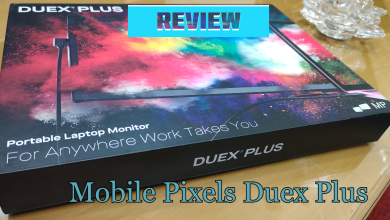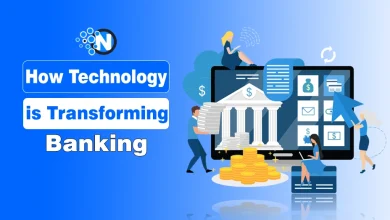16 Best Technologies for the Construction Industry

Automotive, healthcare, and education (and much more) are not the only domains affected by the latest technologies; the construction industry is one of them.
It can feel different to embrace technology in the construction industry, where many materials and techniques have been used for years. Construction companies that do so can save time, money, and effort.
A simple change, such as using construction accounting software, reduces paperwork and vastly improves oversight and financial controls. This can make a huge difference in protecting a project’s budget.
Let’s see how!
Best Technologies for the Construction Industry
Here are the best technologies for the construction industry.
1- Internet of Things (IoT)
IoT sensors and cameras collect data from connected sources. This data can then be analyzed to detect patterns. This helps monitor equipment usage and maintenance schedules, track worker movement and productivity, and improve site safety. IoT technology is very useful in preventive maintenance of machines and other construction related vehicles.
2- AI for Project Planning
AI can be used to go over construction plans and make recommendations for increasing safety, improving workflow, and more. With AI, you can use risk analyses and predictive modeling to assess budgets and schedules better. This makes project planning a lot easier and more effective.
3- Construction Software
Construction management software comes with financial management tools tailored to the industry. Engage in job costing, payroll, accounts payable and accounts receivable, general ledger, cash management, financial reporting, and audits. Accounting software is a major asset for modern construction companies to manage all things in a place.

4- Team Collaboration Platforms
Real-time collaboration on project management sites allows workers to see assignments, send messages, access documents, and track progress. Leverage this tech to minimize errors and miscommunications, maximize efficiency, and ensure there’s always a way to message a team member.
5- Cloud Computing for Project Data
Set up cloud storage services to access project data from anywhere. Send links to collaborators to view reports, analyses, and raw data. Manage documents in a virtual file system that makes project tracking easier. In this way, project teams can gain access to required data in real-time without visiting the desk for several times.
6- Building Information Modeling (BIM)
BIM allows a designer to create a virtual building representation before construction. This is a way to convert a blueprint into a virtual 3D model. A client can then see every detail, explore the layout, and collaborate to detect conflicts or reduce potential errors before it starts to be built. This is the best way to visualize a project idea for better understanding and real-life view.
Read Also: Building Success: Essential Apps and Software for Your Construction Company
7- Mobile Communication
Mobile devices are a key element of project management. They allow project data to be entered or accessed from anywhere. Different team members can communicate and provide updates via mobile devices, which is also useful for safety inspections and quality control.
8- Robotics & Exoskeleton
Robotics can fill in the labour gaps that many construction companies struggle with. While robotics cannot do everything, they can complete repetitive tasks, such as bricklaying and rebar tying on-site. There are all sorts of ways robotics can be applied.
An exoskeleton is powered by robotics and assists workers in lifting heavy loads without additional stress. This gives workers more endurance but allows them to walk away from a project without injury.
9- Drones for Mapping and Monitoring
At first, drone cameras may be used to secure an aerial view and map of a construction site. As a project continues, a drone can also be used to monitor progress, identify hazards, and improve build quality. High-resolution images and video can be captured and imported into project documentation.
10- Virtual Reality Wows in a Client Presentation
Virtual reality allows clients to immerse themselves in project design, making it perfect for design reviews or client presentations. It’s also a way to train workers in real-life scenarios, such as putting them in safety situations or challenging them with tasks that require specialized knowledge.
11- 3D Printing for Complex Components
3D printing has the potential to change the supply chain forever. It can be used to print complex components and custom structural designs on-site, speeding up the construction process dramatically and reducing costs. Developing countries are using giant 3D printers for the construction of different components to increase speed and quality.
12- Prefabrication

Prefabrication, aka modular construction, involves building construction components off-site, delivering them, and assembling them on-site. It may be an alternative or complement to 3D printing. Prefabrication is inexpensive and helps projects move faster.
13- Security Video Surveillance and AI
Artificial intelligence can monitor video surveillance for suspicious activity relating to materials safety and security. If any breach or unauthorized activity is detected, security personnel can be alerted. This provides more security oversight than before.
14- Blockchain for Digital Records
Blockchain improves supply chain management, reduces fraud, and maintains payment security. It can also be used to create digital records of construction payments and materials, ensuring ethical sourcing and sustainability.
15- Green Construction Materials
There are many types of green and eco-friendly materials, including composite materials, bio-based materials, and recycled plastics. All have their place in construction. What is certain is that carbon emissions and waste go down when these materials are used.
16- Smart Buildings
Another area of technology the construction industry has familiarized itself with is energy-efficient building components, such as solar panels and smart grids. A contractor must understand what they are and how they are to be safely installed.
Final Words
Just like other fields and industries, investing in technology for construction projects can do wonders for both clients and construction companies. However, it is important to assess project requirements and the right tools or technologies to get the most out of project budget.



